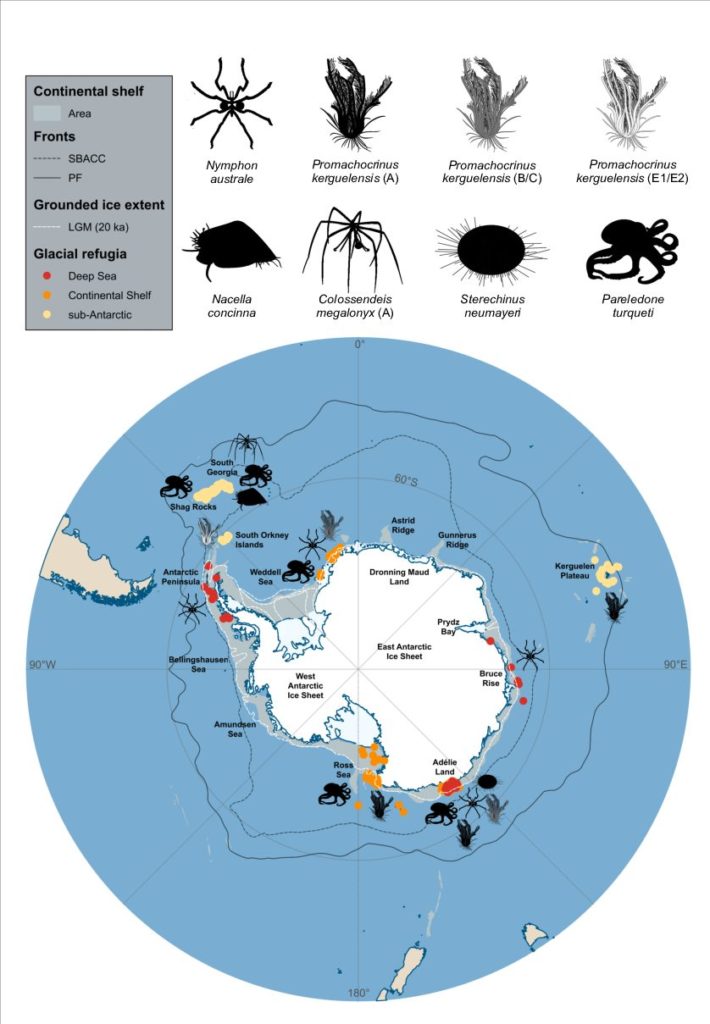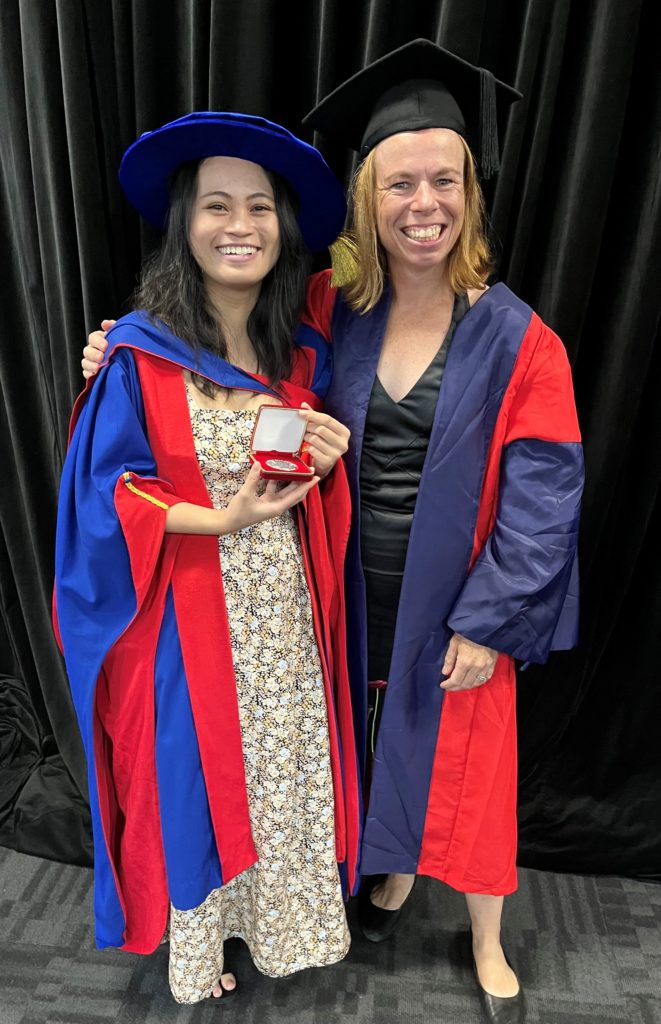
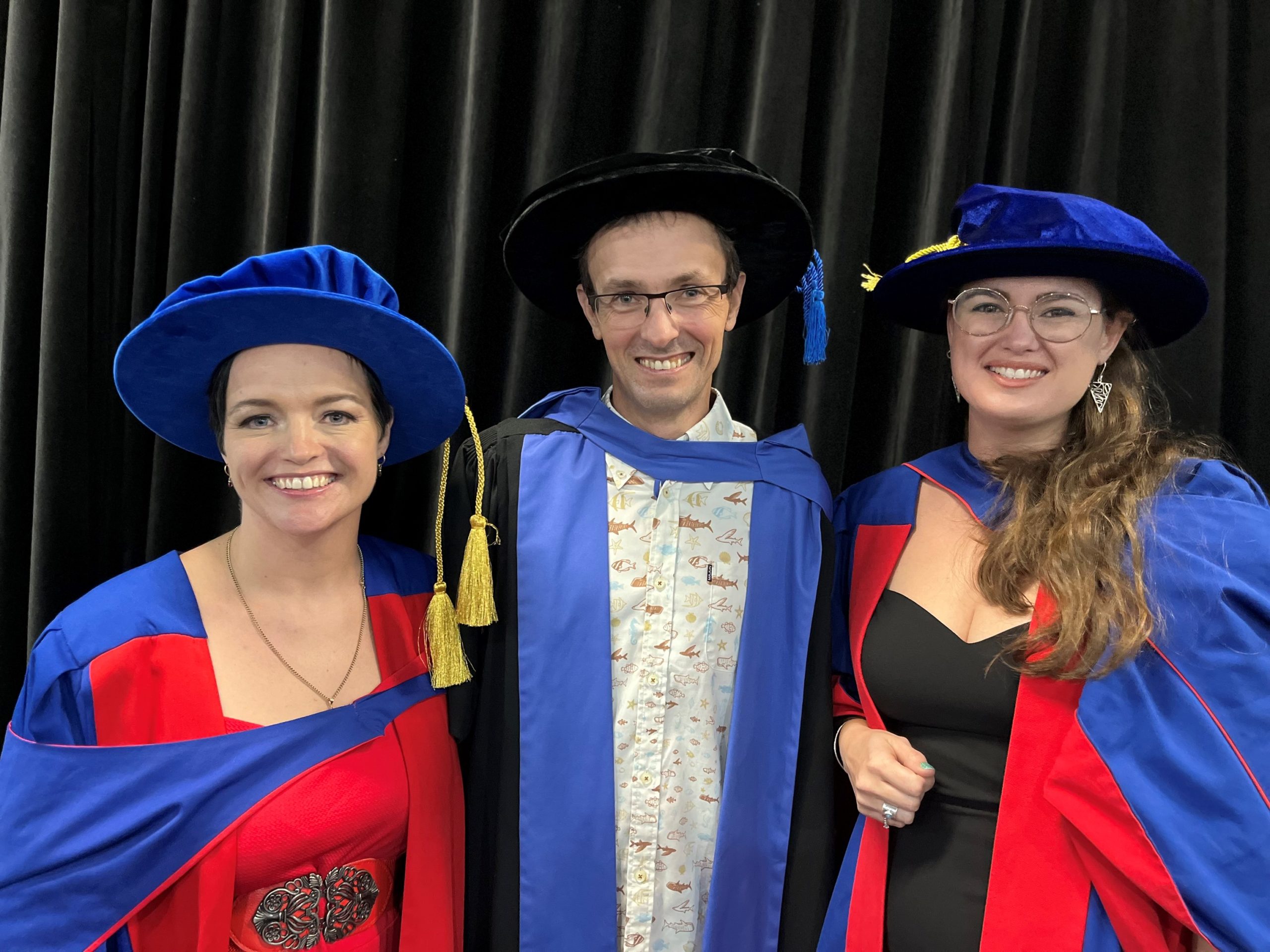
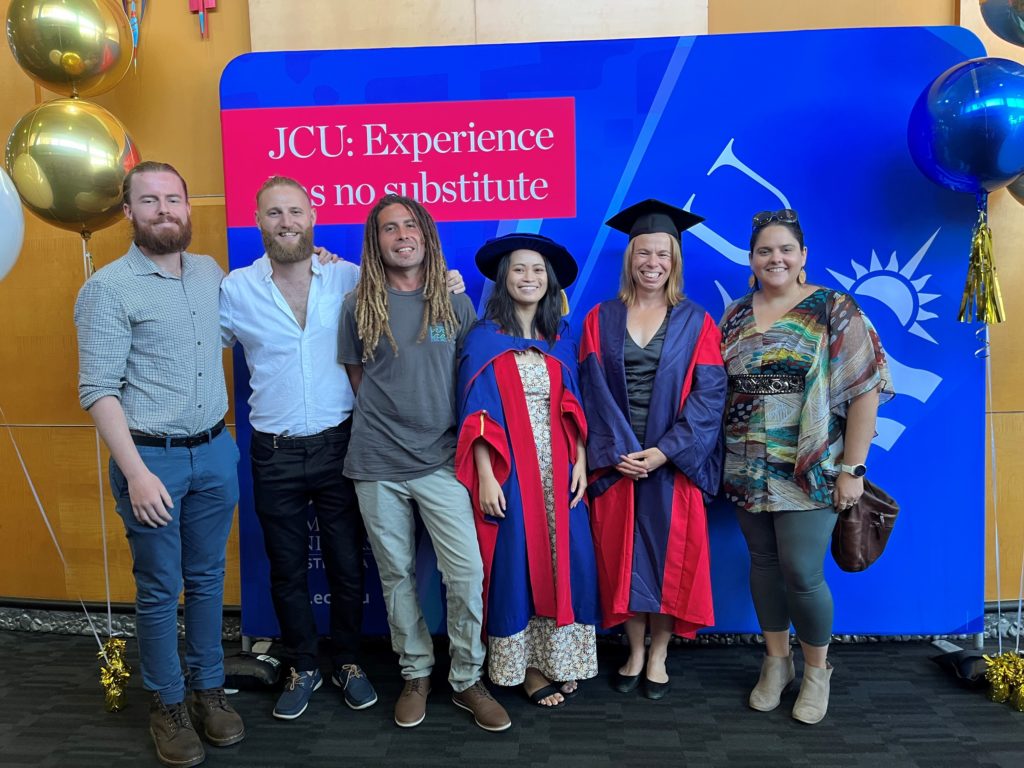
All the hard work and dedication that comes with being a student was celebrated yesterday at the JCU graduate ceremony. Congratulations to all the graduates! As they say, the world is your oyster and we can’t wait to see where you end up next!



All the hard work and dedication that comes with being a student was celebrated yesterday at the JCU graduate ceremony. Congratulations to all the graduates! As they say, the world is your oyster and we can’t wait to see where you end up next!
The latest in Antarctic research from the Marine Omics lab, Sally, Ira and Jan used a novel genomic approach to answer if the West Antarctic Ice Sheet (WAIS) had collapsed during the Last Interglacial period, and they did so by looking into the genomic loci of an Antarctic octopus (Pareledone turqueti). They found a clear, distinct connectivity between Ross Sea and Weddell Sea, dating it back to the last interglacial period, that is different from the signal of the octopus’s general circumpolar movement around the continent. By comparing the genomic data against contrasting hypothesised scenarios via demographic modelling, including no, partial or complete WAIS collapse in the past, their findings suggest the Ross and Weddell connectivity was only possible if the WAIS completely collapsed and opened the seaway connecting the two basins.
A focus of Sally’s PhD research this paper is available as a pre-print on bioRxiv and has certainly made waves, with an interview in The Guardian, IFLScience and has been re-imaged by the creator First Dog on the Moon! Their research is a successful transdisciplinary example demonstrating that only by bringing different disciplines together, we can have the best shot to help solving the current climate change.
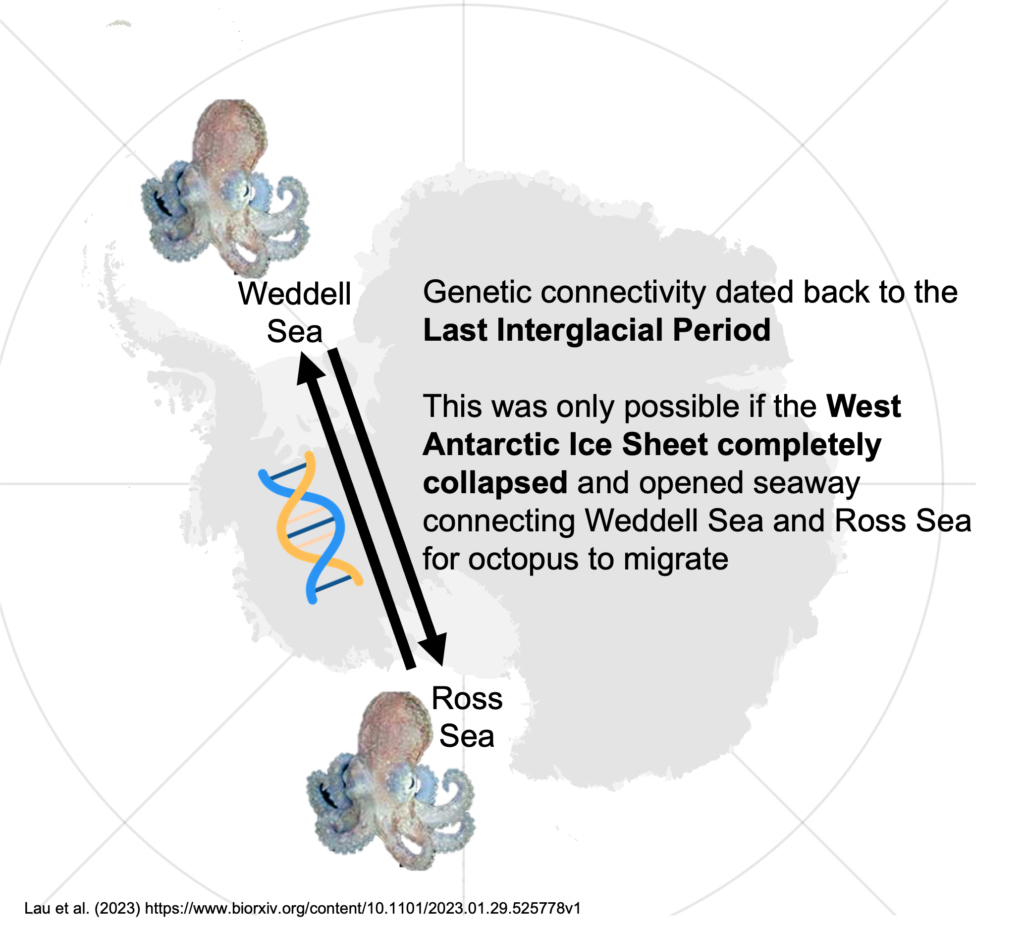
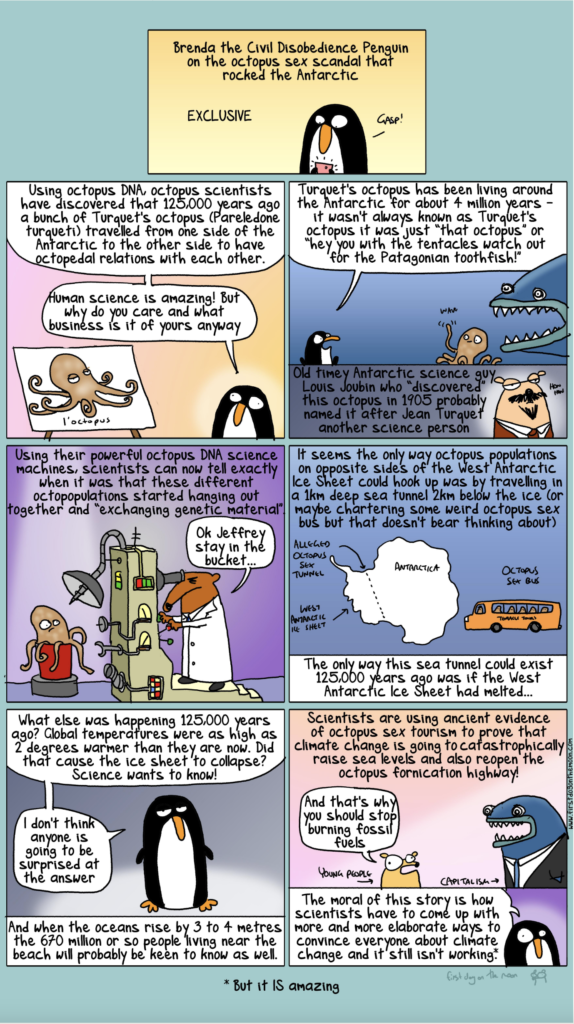
New editorial by Sally and Jan in Global Change Biology (full article here), explores the unprecedented environmental risks and consequences that the Southern Ocean is experiencing from current climate change. They also outlined that knowing how benthic fauna persisted through environmental extremes in the past may inform future predictions. Right now, understanding and preserving current genetic diversity and connectivity between populations will give species the best chance to adapt.
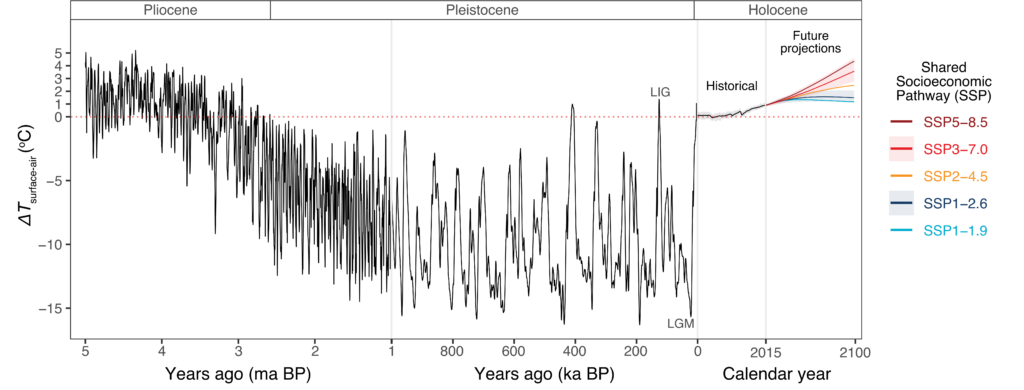
Matt was recently interviewed by the local newspaper about his PhD project on chital deer. Did you know that the Australian chital deer population, currently in the tens of thousands, was originated from only four introduced individuals?! He is looking for leads that can help him collect tissue samples to understand their movement patterns from a genomic perspective!
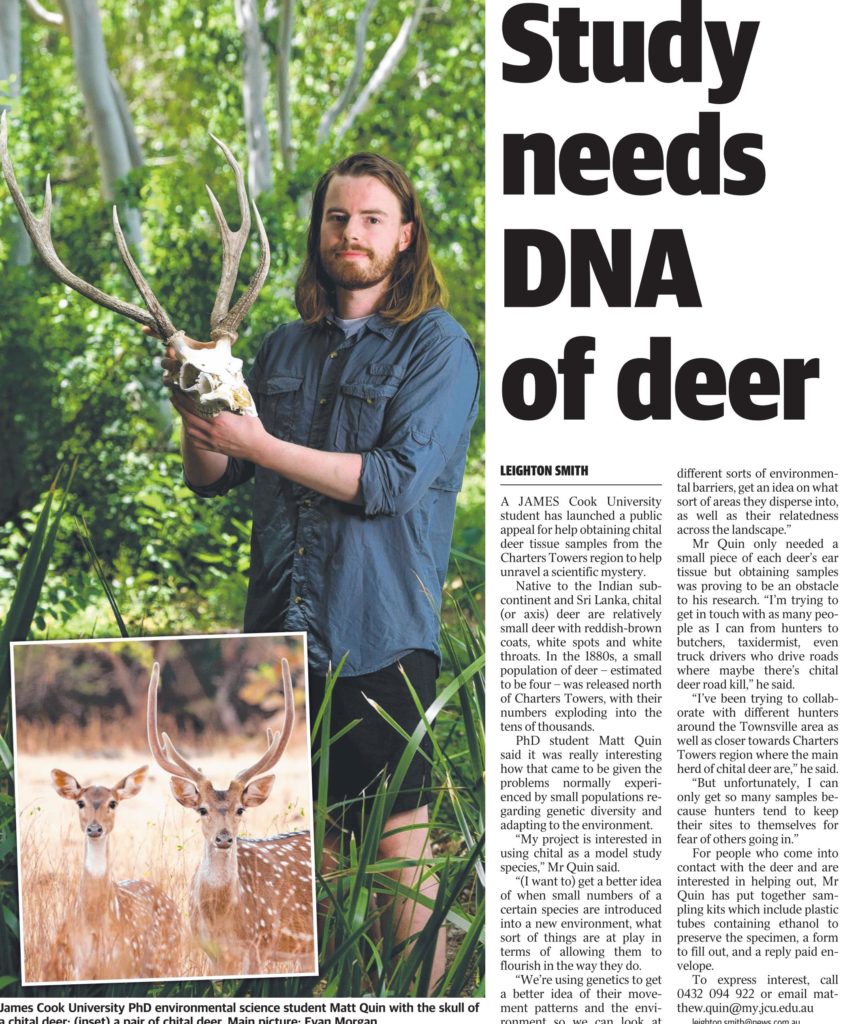
Throughout the Plio-Pleistocene glacial cycles, the Antarctic ice sheets expanded and contracted repeatedly, which led to the repeated erosion of the Antarctic continental shelf throughout glacial maxima. Even though molecular and paleontological evidence suggests most extant Antarctic benthos persisted in situ in the Southern Ocean during Plio-Pleistocene, where and how they survived remain mostly hypothesised.
Our paper recently published in Ecography synthesises current geological and ecological evidence to understand where and how benthos might have survived glacial cycles and how this challenging period might have impacted past species demography. We also examined current molecular evidence of glacial refugia in the Southern Ocean, as well as discussed future directions for employing testable frameworks and genomic methods in Southern Ocean molecular studies.
